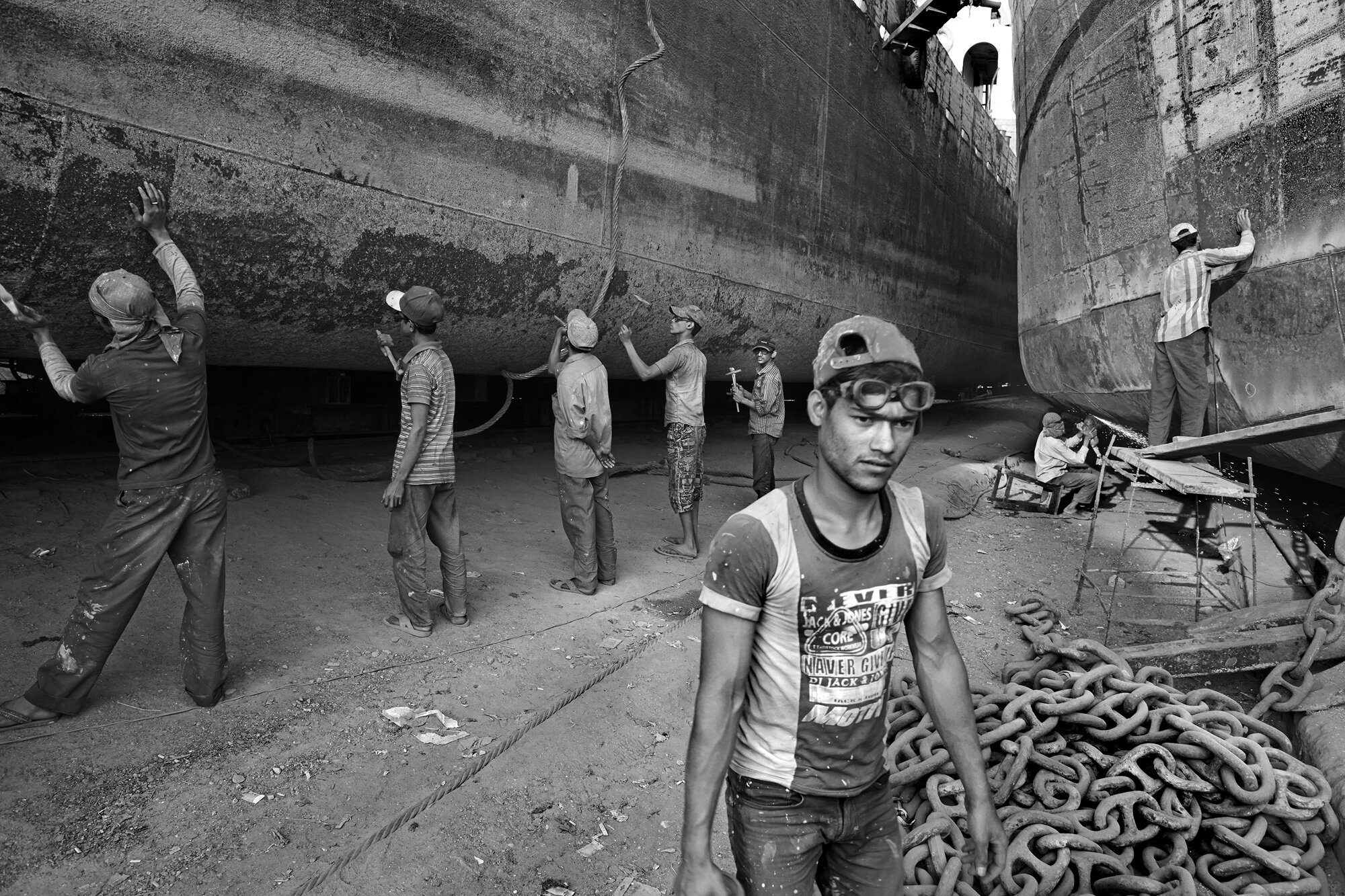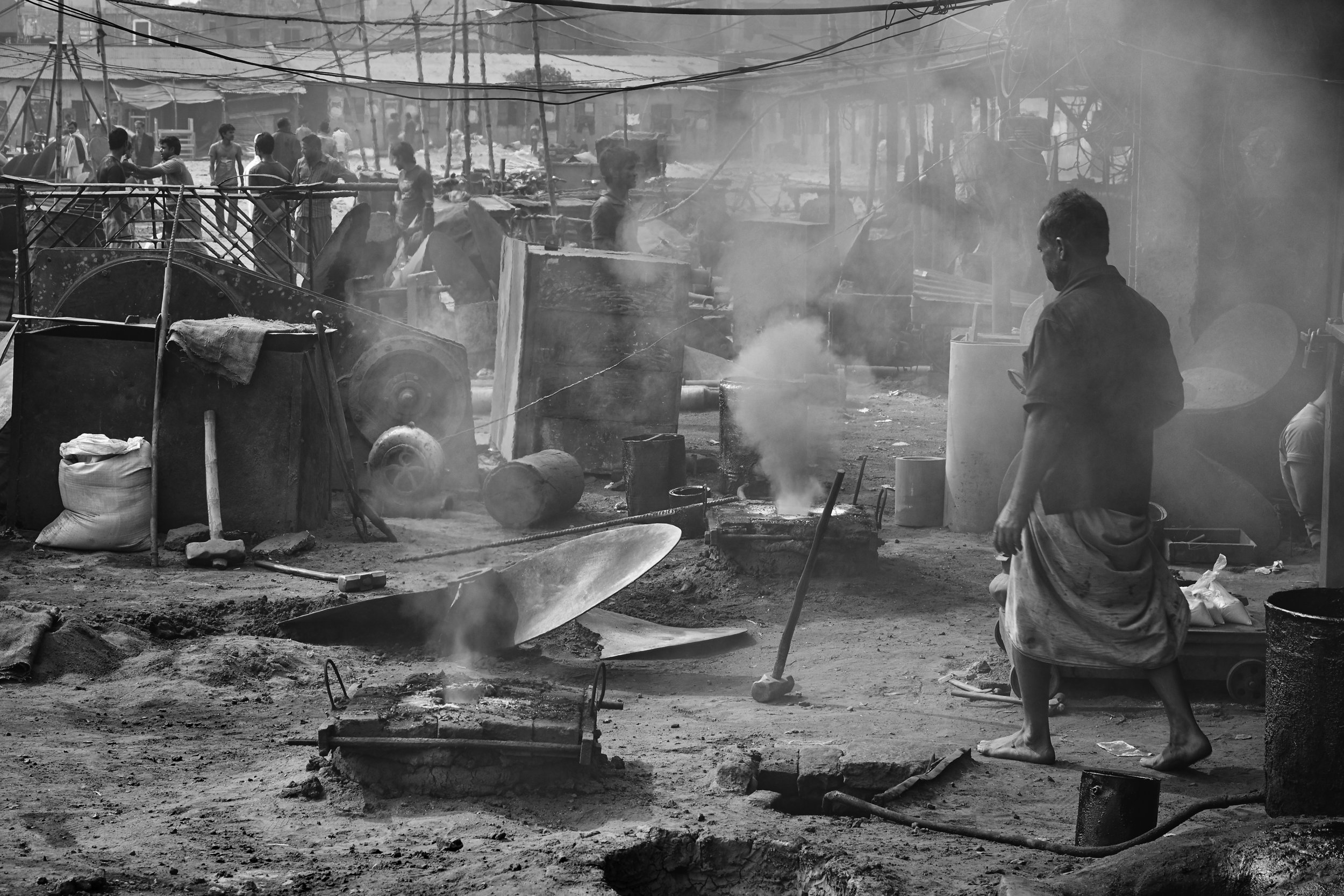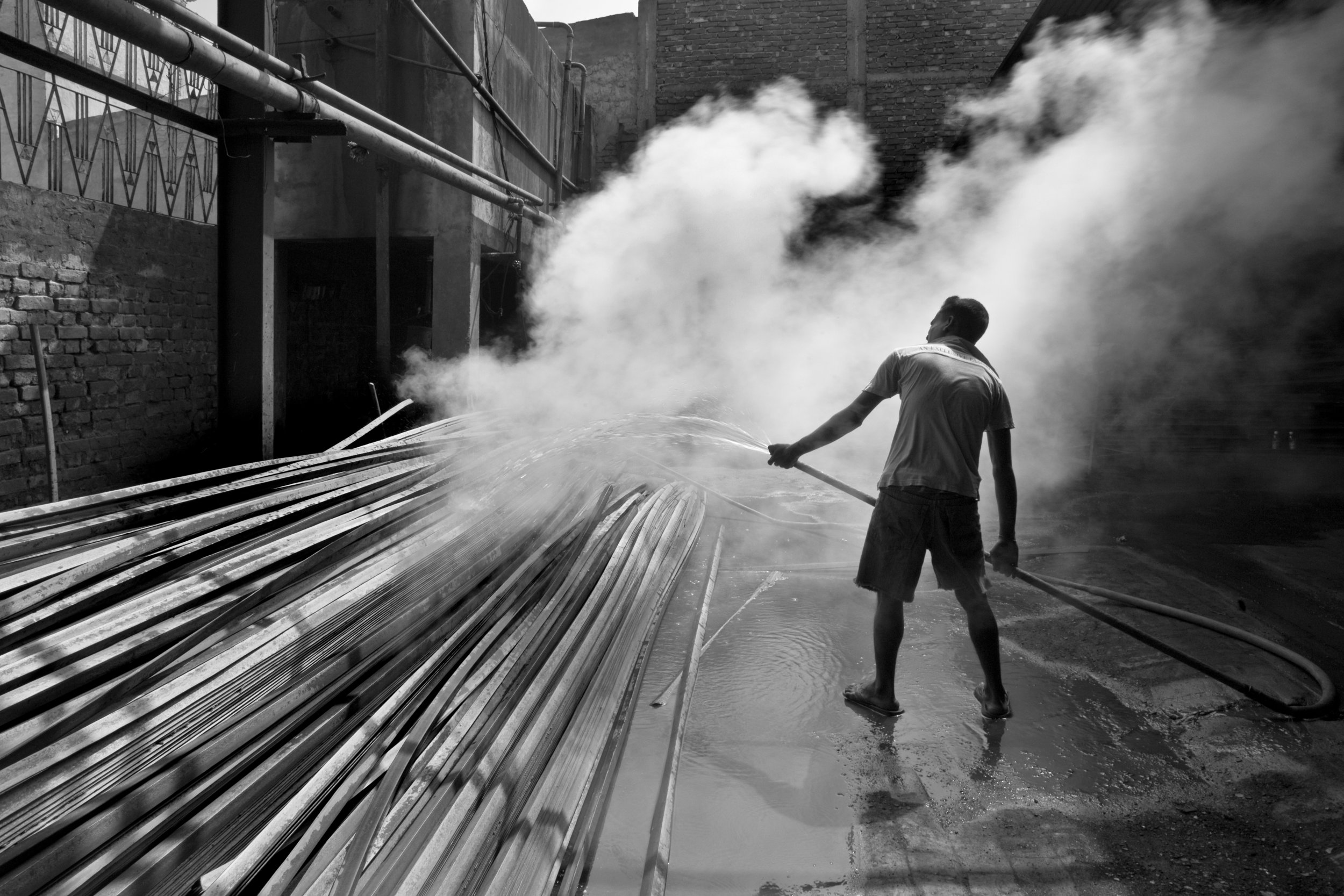Shipyards in Bangladesh
(Dhaka, Chittagong, Bangladesh)
Modern day ship making is a huge industry located in high tech state-of-the-art factories while modern day ship dismantling and recycling are occurring in the poorest countries in the world. The ship breaking or ship dismantling and recycling is a huge industry in Bangladesh. It accounts for at least 20% of Bangladesh's domestic needs for metal. Extraction of equipment, parts and material from these large ships is considered to be a sustainable way to recycle ships that are at the end of their life span. The big concern is that this process is being carried out in poorer countries that do not have strict environmental legislation or employee safety legislations. In fact, ship breaking is considered to be one of the worlds most dangerous industries for the environment and its workers. The work is highly labor intensive. Workers with very little training and very little safety equipment at very low wages are in working in environments where there are often toxic chemicals, asbestos and oil. Using only gas blow torches and sledgehammers and not much safety gear, they will dismantle a large ship in 8-12 months, working 12 hours days with wages as low as $5 US/day. Not to mention the contamination in the waters the workers are working in. There are nails and other debris in the water along with toxic lead paint and other industrial liquids and solvent leaking from the boats into the water. There are people working in the water with their bare skin and worst yet, there was a very young child bathing in the same water. In fact, many of the urban poor use this same water daily to bath, brush their teeth, to wash their clothes and dishes. I later find out that the Buriganga river, one of the most polluted Rivers in Bangladesh, is considered to be the toxic life line of Dhaka, providing water to the urban poor who live along its banks but also bringing disease and illness with its toxic waters. The series above are scenes to highlight the dangerous work of these labourers in ship breaking and recycling yards in Bangladesh.




























